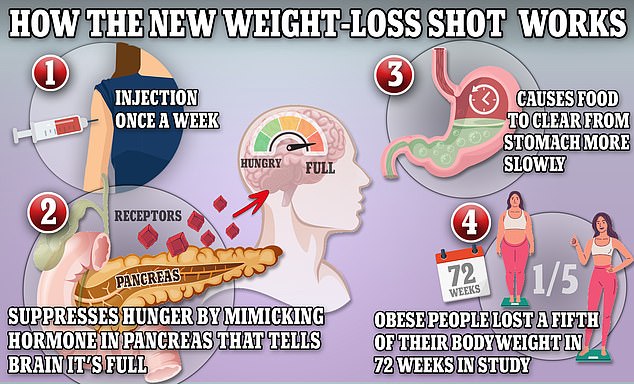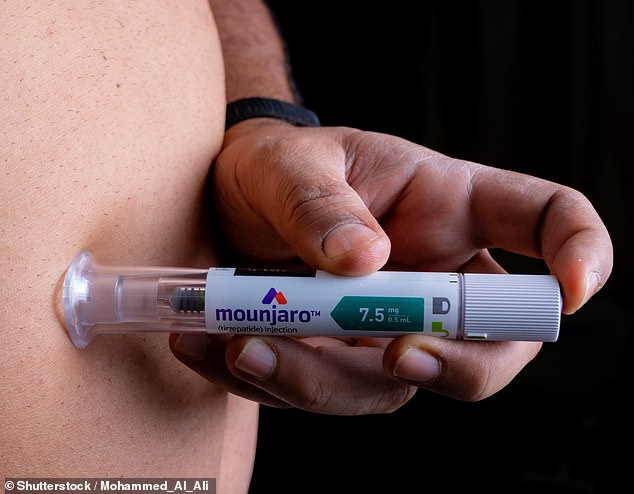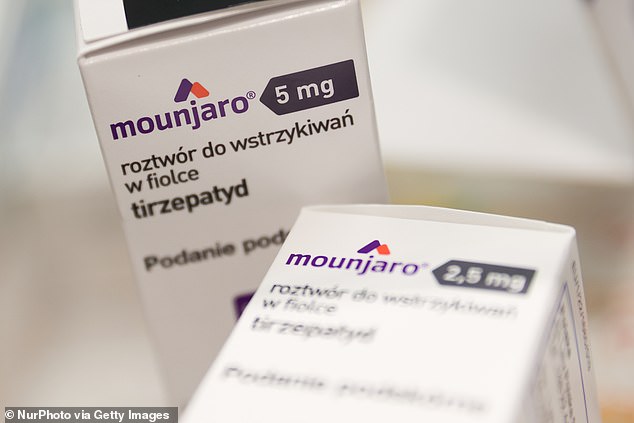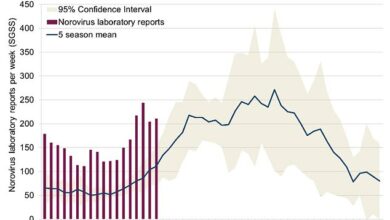More than 1.6 million Brits are getting free ‘King Kong’ of fat-burning jabs on the NHS




More than 1.6 million Britons will receive the ‘King Kong’ of the NHS over the next twelve years.
Mounjaro – which can help users lose more than a quarter of their body weight in 18 months – should be given to the most overweight cases first, says NHS England.
Injections will be offered with a ‘wraparound’ health plan, including diet and exercise support.
Over the next three years, the jabs could be given to almost a quarter of a million people with a BMI of 40 or more, plus three health conditions linked to being overweight – including heart disease, high blood pressure or obstructive sleep apnea.
The phased rollout would offer the drug to 1.6 million people over 12 years, eventually including people with a body mass index of 35 or more and weight-related health problems.

Mounjaro can help users lose more than a quarter of their body weight in 18 months

Research has shown that the drug can cause patients to lose an average of 21 percent of their body weight in 36 weeks.
Mounjaro, also known as tirzepatide, has been called the ‘King Kong’ of slimming shots because extensive testing has shown it to be the most effective drug on the market.
Research has shown that the drug can cause patients to lose an average of 21 percent of their body weight in 36 weeks and 26 percent of their body weight in 84 weeks.
To make the rollout faster and easier for patients, officials have said prescriptions could be issued through “virtual clinics” instead of in-person appointments.
A consultation on the proposals has been launched, which will be considered by the National Institute for Health and Care Excellence (Nice) before it publishes its final guidance on Mounjaro and obesity later this year. Under the proposals, the scheme would be reviewed after three years, before a wider expansion.
Mounjaro, which costs £122 a month, is a glucagon-like peptide-1 (GLP-1) agonist, a family of drugs that help control blood sugar levels. Other GLP-1 agonists include semaglutide – sold under the brand names Wegovy, Ozempic and Rybelsus.
Dr. Sam Roberts, CEO of Nice, said: ‘This new generation of weight loss medicines has the potential to deliver important health and wellbeing benefits for people with obesity. They can also prevent serious health problems from developing, reducing long-term risks for individuals. Our independent committee judged that this medicine is both effective and good value for money.
‘Its use will help people with obesity lose weight, and as a result, significantly reduce the risk that they will develop serious health-related problems associated with obesity, such as heart disease and stroke.’

Mounjaro works by prompting the body to produce a hormone called GLP-1, which is released naturally from the intestines after meals.
NHS England’s national medical director, Professor Sir Stephen Powis, added: ‘This medicine will be a powerful part of our arsenal to tackle obesity and support many more people to lose weight and reduce their risk of diabetes, heart attacks and reduce strokes. This phased rollout will ensure that those with the greatest clinical need get priority access – with a quarter of a million people benefiting from it over the first three years.
‘With the huge number of people who may be eligible for these treatments and GP teams already making record numbers of appointments, the NHS is developing a range of community-based and digital services to deliver the benefits of weight loss medicines whilst continuing to ensure GPs do this can do. providing all other essential services that patients rely on.”
The latest health survey for England, published last week, found that obesity rates have not fallen since 2019.
In 2022, almost one in three adults in England were obese, while two-thirds were overweight.




